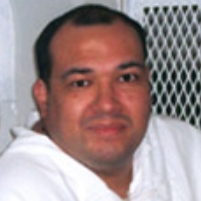Texas Defies Presidential Authority in Planned Execution of Mexican Citizen
Sunday, June 12, 2011
 Humberto Leal
Humberto Leal
The state of Texas is set to execute a Mexican national convicted of murder who was never informed of his right to receive help from his home government—a violation of international law that threatens to establish a dangerous precedent affecting American citizens abroad.
Humberto Leal García, who had no prior criminal convictions, was tried, convicted and sentenced to death by Texas authorities without ever informing him of his consular rights and without notifying the Mexican consulate of the situation. Seven years ago, Leal’s case was brought before the International Court of Justice (ICJ), which declared the United States had breached its obligations under Article 36 of the Vienna Convention.
To remedy the violation, the ICJ ruled that the U.S. must review Leal’s conviction and sentence. The administration of George W. Bush affirmed the ruling and told Texas to reconsider the case. However, in 2008, the U.S. Supreme Court, in Medellin v. Texas, voted 6-3 that President Bush had no right to impose his authority on the state of Texas unless Congress passed legislation making ICJ rulings binding according to U.S. law.
Without such federal legislation, Texas officials refused to comply with presidential requests, and they now intend to go through with Leal’s execution on July 7.
The refusal to review came despite the fact that Leal “received disgracefully inadequate legal representation” at his original trial, says Sandra Babcock, a Northwestern University Law School professor who is helping Leal appeal his sentence. One of his trial attorneys was “reprimanded or suspended from the practice of law on multiple occasions as a result of ethical violations,” Babcock adds, and Leal was convicted “on the basis of junk ‘bite mark’ science, since discredited by the National Academy of Sciences, and patently unreliable forensic evidence.”
In 1994, Leal was charged with raping and murdering 16-year-old Adria Sauceda after a drunken party in San Antonio. Leal, who was 21 at the time, told police that he had killed Sauceda by mistake after a fight. His supporters believe that, before imposing the death penalty, his public defenders should have brought up his unusually difficult childhood, including allegedly having been sexually abused by his parish priest, Father Federico Fernández.
A bipartisan group that includes former U.S. diplomats, retired military leaders, former judges and prosecutors, and organizations representing Americans abroad has called on Texas Governor Rick Perry and the Board of Pardons and Paroles to grant a stay of execution to Leal. If the request is ignored and Leal is executed, Americans overseas could find themselves, in retaliation, at the mercy of foreign judicial systems without the assistance of help from U.S. consulates, advocates of Leal warn.
-Noel Brinkerhoff
Illegal Injections: How Texas is Breaking the Law, One Execution at a Time (by Michael Barajas, San Antonio Current)
Texas Inmate at the Nexus of Execution and Abuse (by Brnsi Grissom, Texas Tribune)
Texas Execution Could Risk Americans' Safety Abroad (by Sandra Babcock, Huffington Post)
On July 7, Texas is Poised to Execute Humberto Leal García (HumbertoLeal.org)
- Top Stories
- Unusual News
- Where is the Money Going?
- Controversies
- U.S. and the World
- Appointments and Resignations
- Latest News
- Trump to Stop Deportations If…
- Trump Denounces World Series
- What If China Invaded the United States?
- Donald Trump Has a Mental Health Problem and It Has a Name
- Trump Goes on Renaming Frenzy






Comments